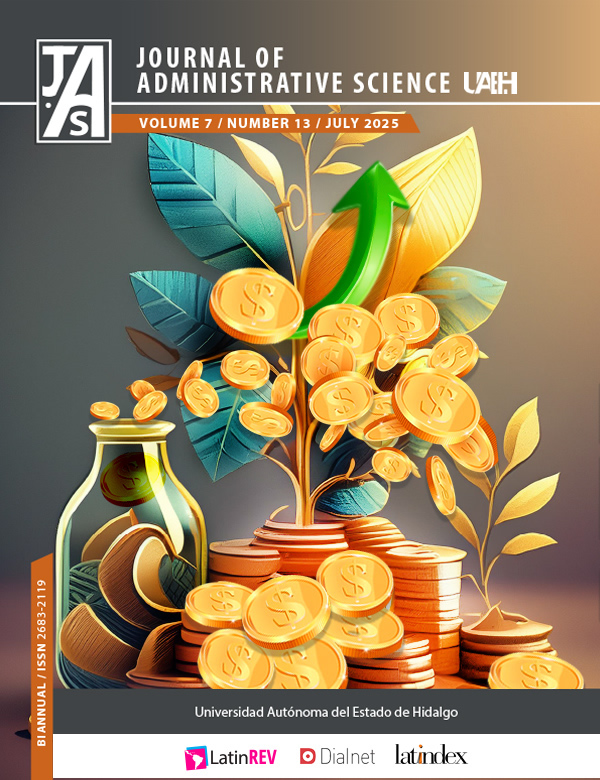The Cybersecurity: an emerging topic for tourism professional training
DOI:
https://doi.org/10.29057/jas.v7i13.14268Keywords:
Cybersecurity, Tourism professionalization, Higher educationAbstract
Cybersecurity is a growing challenge in the digital era, particularly in the tourism sector, where technology plays a pivotal role in developing smart destinations. This essay examines how higher education institutions offering tourism programs must adapt to prepare future professionals for security challenges. The aim is to analyse the tools and skills required to safeguard data and systems within the tourism industry. Emphasizing the importance of continuous updates in cybersecurity, both in academic training and professional practice, ensures graduates are equipped to address the demands of future tourism, where technology and digital security are fundamental components.
Downloads
Publication Facts
Reviewer profiles N/A
Author statements
Indexed in
- Academic society
- N/A
- Publisher
- Universidad Autónoma del Estado de Hidalgo
References
Gretzel, U., Sigala, M., & Koo, C. (2020). Smart tourism: Foundations and developments. Electronic Markets, 30(2), 161-172. https://doi.org/10.1007/s12525-020-00425-3
Khan, F., Sadiq, M., Chang, Y., & Feng, Y. (2022). Cybersecurity in the tourism industry: Threats, impacts, and preventive measures. Tourism Management Perspectives, 42, 100956. https://doi.org/10.1016/j.tmp.2021.100956
Buhalis, D. (2021). Smart tourism: Harnessing data and technology for the future of tourism. Journal of Tourism Futures, 7(3), 244-260. https://doi.org/10.1108/JTF-12-2019-0159
Neidhardt, J., Werthner, H., & Wöber, K. (2017). Digital ecosystems in tourism. Tourism Management, 65, 348-362. https://doi.org/10.1016/j.tourman.2017.09.010
Luo, J., & Bu, W. (2021). The impact of cybersecurity on the tourism industry: Vulnerabilities and solutions. Journal of Travel & Tourism Marketing, 38(5), 469-482. https://doi.org/10.1080/10548408.2021.1907673
Tussyadiah, I. P., & Wang, D. (2016). Tourists' perceptions of risk and technology adoption: The case of travel planning. Journal of Travel Research, 55(7), 883-898. https://doi.org/10.1177/0047287515588723
Shafiee, M., & Zegordi, S. (2020). Smart tourism and cybersecurity: Risks in the era of interconnected services. International Journal of Tourism Research, 22(4), 432-446. https://doi.org/10.1002/jtr.2341
Griffin, A. (2019). British Airways fined record £183m for data breach affecting 380,000 customers. The Independent. https://www.independent.co.uk
Frost, R. (2019). The impact of ransomware attacks on the hospitality sector: A case study of TravelClick. Cybersecurity Review, 7(2), 118-125. https://doi.org/10.1080/00000000.2019.120001
Ivanov, S., & Webster, C. (2019). Adoption of robots, artificial intelligence, and service automation by travel, tourism, and hospitality companies – A cost-benefit analysis. International Journal of Contemporary Hospitality Management, 31(6), 2567-2585. https://doi.org/10.1108/IJCHM-11-2018-0925
De Bruyn, A., Visser, G., & Olver, C. (2022). Cybersecurity readiness in tourism organizations: An exploratory study. Journal of Sustainable Tourism, 30(5), 915-933. https://doi.org/10.1080/09669582.2022.2056783
Török, L., & Barta, G. (2020). Tourism education and digital transformation: Preparing students for the future. Tourism Economics, 26(8), 1299-1313. https://doi.org/10.1177/1354816619888671
Beuran, R., Tang, D., & Pham, C. (2021). Cybersecurity education for tourism: Developing practical skills through simulation-based training. Journal of Tourism and Hospitality Education, 9(2), 45-58. https://doi.org/10.1007/s40593-020-00234-5
Chen, Y. (2020). Collaborative learning in cybersecurity education: Partnerships between academia and industry in tourism training. Journal of Hospitality and Tourism Technology, 11(4), 321-334. https://doi.org/10.1108/JHTT-05-2020-0068
Díaz-Fernández, M., López-Cruz, M., & Serrano-Sánchez, J. L. (2021). Digital skills for tourism graduates: Preparing for the industry's future needs. Tourism Management Perspectives, 38, 100821. https://doi.org/10.1016/j.tmp.2020.100821
Lehto, X. Y., & Wang, Y. (2021). Cybersecurity in hospitality education: Integrating risk management in tourism curricula. Journal of Hospitality, Leisure, Sport & Tourism Education, 28, 100318. https://doi.org/10.1016/j.jhlste.2021.100318
Huang, Y., & Kao, W. (2020). Enhancing cybersecurity education in tourism through interdisciplinary collaboration. Journal of Tourism and Hospitality Management, 8(3), 209-225. https://doi.org/10.15640/jthm.v8n3a18
Downloads
Published
How to Cite
Issue
Section
License
Copyright (c) 2025 Nancy Testón Franco, Cristopher Antonio Muñoz Ibáñez

This work is licensed under a Creative Commons Attribution-NonCommercial-NoDerivatives 4.0 International License.

















